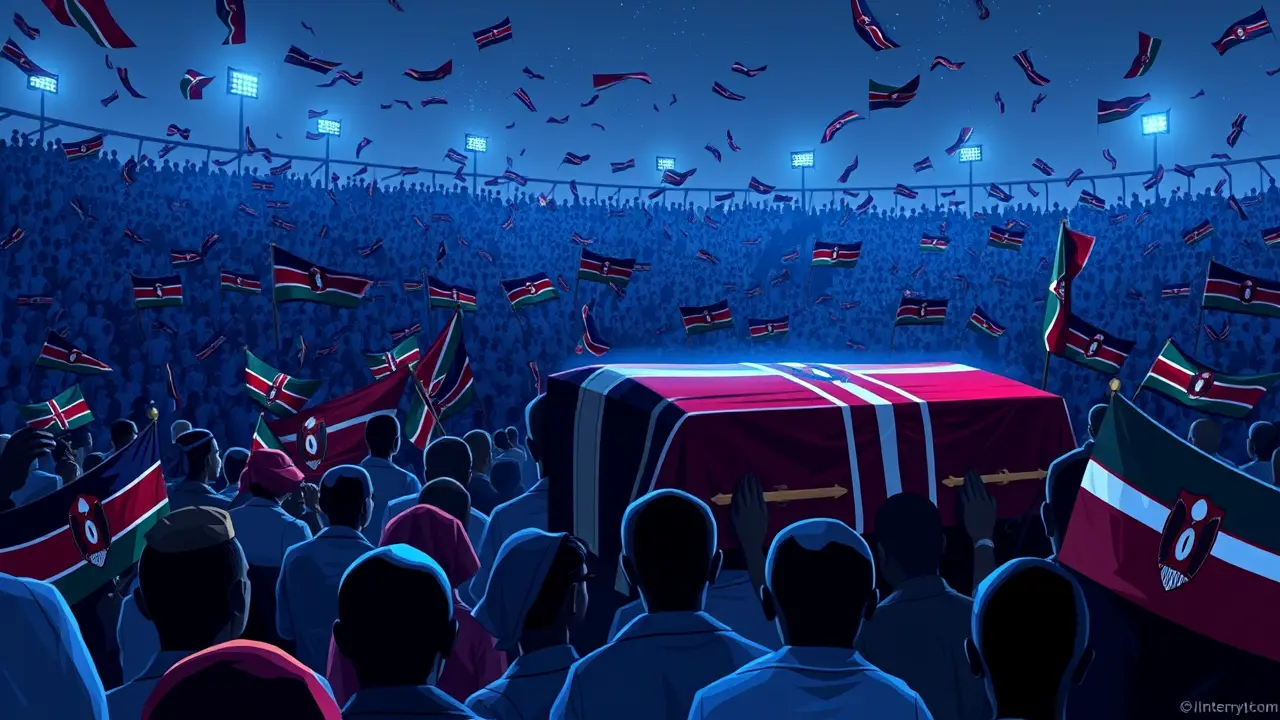Thousands Attend State Funeral of Former Kenyan PM Odinga
A sea of Kenyan flags, not as symbols of mere patriotism but as banners of collective grief, washed over the stadium today, a raw, human tide of thousands who came not out of obligation but out of a profound, personal need to bear witness. The state funeral for former Prime Minister Raila Odinga was never going to be a quiet, bureaucratic affair; it was, from its first mournful note, a seismic event in the nation's soul, a final, tumultuous chapter for a man who was less a politician and more a permanent feature of Kenya’s political landscape, a figure whose very name could electrify a crowd or send shockwaves through the halls of power.I watched from the edge of the field, the morning sun harsh on the faces of mourners who held portraits of their 'Agwambo' aloft, their expressions a complex map of sorrow, defiance, and a flickering hope that felt dangerously fragile. This was more than a farewell; it was a reckoning.The context here is everything, a history written in struggle and sacrifice. Odinga’s story is inextricably woven into the fabric of modern Kenya—from his father’s foundational role in the independence movement to his own decades as the perennial opposition leader, the defiant voice from the political wilderness who endured imprisonment and exile, always contesting, always challenging the status quo.His presidential bids, particularly the bitterly disputed 2007 election, weren't just lost campaigns; they were catalysts that plunged the nation into ethnic violence, a trauma whose scars are still visible today in the wary glances and the carefully chosen words of a nation still learning to heal. To understand the crowds, the raw emotion, one must understand that for millions, Odinga represented a stubborn, unyielding belief in a different Kenya, a more equitable one, even when that belief seemed like a fool's hope.The atmosphere was thick with more than just heat and dust; it was charged with the unspoken question of what comes next. Expert commentators I spoke to, their voices hushed amidst the solemn hymns, pointed not to the immediate political vacuum, but to the deeper, structural schism his passing creates.His role as a kingmaker and a unifying figure for a significant bloc of the electorate was unique, born of a personal political capital that no successor can simply inherit. Without his towering presence to negotiate truces or mobilize his base, the delicate equilibrium of Kenyan politics is now untethered, facing a future where old ethnic alliances could fracture and new, unpredictable configurations might emerge, potentially leading to a period of intensified instability.The consequences ripple far beyond Nairobi’s borders; regional partners in East Africa watch nervously, aware that Kenya’s stability is a linchpin for the entire region, and Odinga was a known quantity, a force they had learned to navigate. The sight of his casket, draped in the national flag, felt less like an end and more like an intermission in a high-stakes drama, the final act of which is yet to be written, its script unknown and its potential for conflict very, very real. This was a funeral, yes, but it was also a powerful, emotional, and deeply unsettling preview of the battles to come.
JA
Jamie Lowe123k2 days ago
wow what a legacy tbh, makes you think about where things go from here
0
